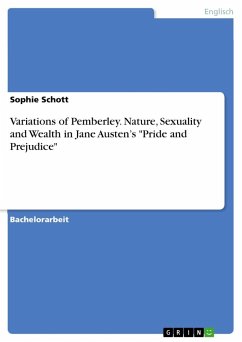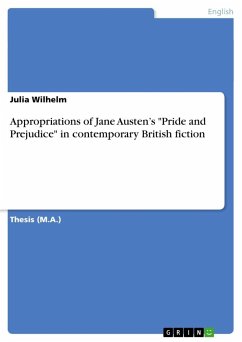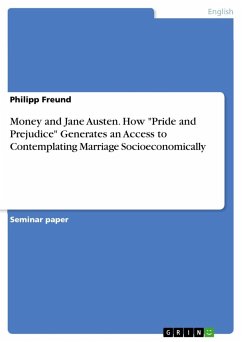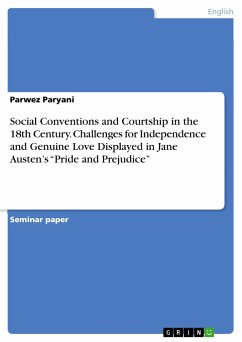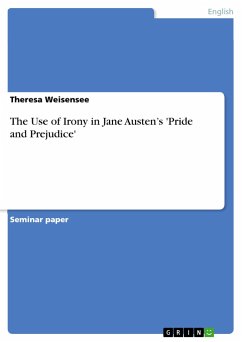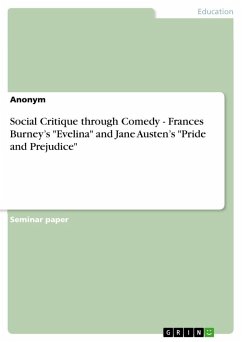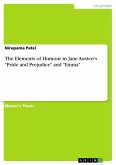Bachelorarbeit aus dem Jahr 2017 im Fachbereich Anglistik - Literatur, Note: 1,7, Johann Wolfgang Goethe-Universität Frankfurt am Main, Sprache: Deutsch, Abstract: A precise analysis between a novel's transmission of a story and a film's depiction can be achieved by including adaptation theory and comparing a novel to its audio-visual interpretations. The most-adapted author of the nineteenth century is Jane Austen with her well-known British classic novel Pride and Prejudice as "one of the most adapted of all novels". It was first published in 1813 and has been adapted both closely and loosely into television series, motion picture films, radio plays, theatre performances and other novels. The existing adaptations convey the story in various ways, for example setting it in Austen's time or transferring it to modern times.Pride and Prejudice begins with the announcement of a young, affluent single man called Charles Bingley who moves to Netherfield Park. Mrs Bennet, the mother ofJane, Elizabeth, Mary, Kitty and Lydia, and who lives in a nearby village called Longbourn, hopes for a marriage between the man and one of her five daughters. After several social events, the sisters not only get to know Bingley, who is attracted to Jane, but also to his friend Darcy. He, who also is an affluent bachelor, is introduced as a proud and disagreeable man after acting haughty due to his higher social standing and refusing to dance with Elizabeth at a ball. [...]
Hinweis: Dieser Artikel kann nur an eine deutsche Lieferadresse ausgeliefert werden.
Hinweis: Dieser Artikel kann nur an eine deutsche Lieferadresse ausgeliefert werden.

